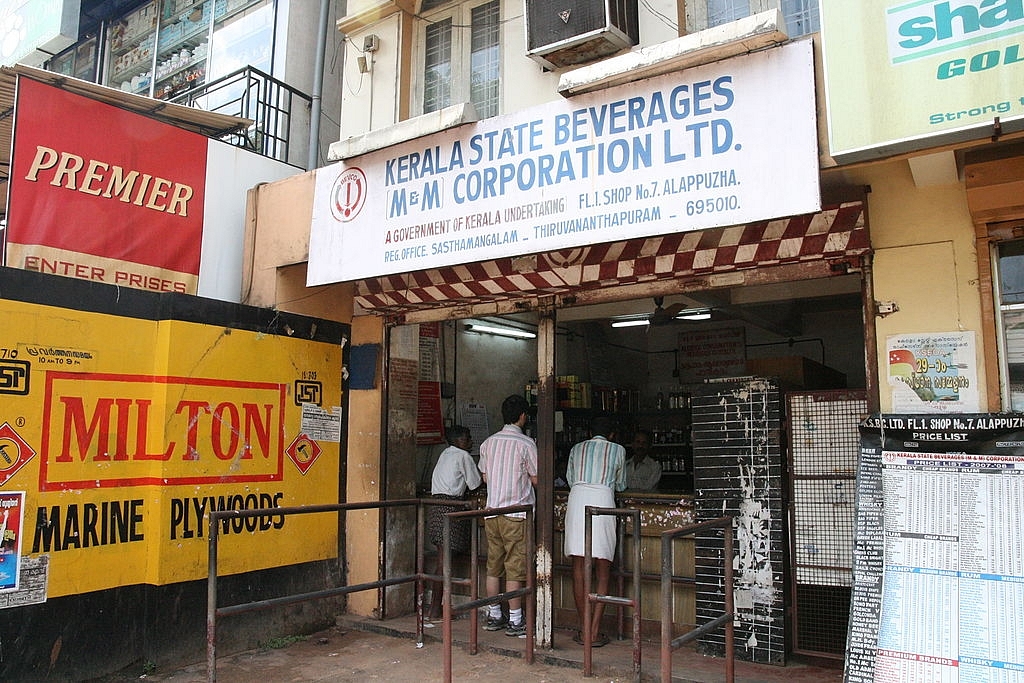Politics
Kerala Liquor Bar Verdict: The Supreme Court Is Tying Itself In Knots

The Supreme Court needs to introspect the principles underlying its verdict that upheld the Kerala government’s ban on liquor bars.
The Supreme Court’s judgment yesterday (29 December) that upheld the Kerala government’s ban on liquor bars (except in five-star hotels) is interesting for it contradicts many of the basic premises on which recent judgments have been based.
A key principle on which it decided to uphold the Kerala government’s decision banning liquor bars everywhere is that courts should not intervene in policy areas. Laudably, the two-judge bench comprising Justices Vikramjit Sen and Shiva Kirti Singh, had this to say:
Courts must be loath to venture into an evaluation of state policy… If a policy proves to be unwise, oppressive or mindless, the electorate has been quick to make the government aware of its folly.
This is unexceptionable. But then what prompted the same Supreme Court to decide that diesel cars above 2000 cc should not be registered for three months? Why not leave that to the wisdom of the elected representatives and the voter? While pollution is a serious problem in many metros, including Delhi, the fact is that sellers of SUVs and diesel vehicles broke no law whatsoever. By deciding what it did, the court effectively introduced a new element of business uncertainty.
The same can be said about its larger reasoning in upholding the Kerala decision to allow bars only in five-stars.The principle the court held earlier – that the rich cannot be allowed to use polluting cars – has been overturned in the Kerala judgment, where effectively it has said that the rich are free to consume liquor freely, but not the less well endowed. The court said the following, according to The Hindu:
The court said there was a ‘reasonable nexus’ between the policy exempting five-star hotels and the state’s objective to rescue public health. ‘The prices/tariff of alcohol in five-star hotels is usually prohibitively high, which acts as a deterrent to individuals going in for binge or even casual drinking.
Even ignoring the discriminatory nature of this verdict, one should ask: does the same logic not apply to buyers of big SUVs or diesel cars in the 2,000 cc plus range? Since only the rich can afford them, they may not be doing that much damage in terms of pollution compared to smaller diesel cars. Does the court seriously believe that a diesel Merc or BMW is a more serious threat than diesel mid-size cars?
Also, if the basic idea is that courts must not get too often into the policy area, why has the Supreme Court repeatedly done so? Why is it chasing black money instead of allowing the government and its agencies to do so? After all, did not the voter just reject a corrupt UPA? Why has the court decided what state government ads can do and what they cannot? The Supreme Court needs to introspect and set up a group to reconcile the principles underlying its various verdicts. It cannot keep saying two different things in two different cases.
Support Swarajya's 50 Ground Reports Project & Sponsor A Story
Every general election Swarajya does a 50 ground reports project.
Aimed only at serious readers and those who appreciate the nuances of political undercurrents, the project provides a sense of India's electoral landscape. As you know, these reports are produced after considerable investment of travel, time and effort on the ground.
This time too we've kicked off the project in style and have covered over 30 constituencies already. If you're someone who appreciates such work and have enjoyed our coverage please consider sponsoring a ground report for just Rs 2999 to Rs 19,999 - it goes a long way in helping us produce more quality reportage.
You can also back this project by becoming a subscriber for as little as Rs 999 - so do click on this links and choose a plan that suits you and back us.
Click below to contribute.
Latest